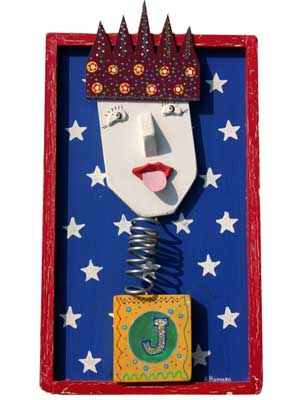PICKING COTTON
My father would take me over for a closer look. We would watch the black people dump their bags into a wagon, then they would move back out into a new row to pick more.
One day the man who owned the farm asked me, "You want to pick some cotton, Boy?" I surely did, but I had no bag. That afternoon my mother cut some material and made me a little bag that fit over my shoulder. She and my father took me back across the field and I went to work pulling strands of soft cotton out of the bolls.
"Pick 'em clean," the farmer would yell to me.
Picking cotton soon became a drudgery, long before I had my little bag filled. I wandered back up to the end of the row where my parents and the farmer stood watching.
"I'm tired," I complained.
"Well, give me the cotton," the famer said, "and I will pay you." He took some change out of his pocket as he reached for my bag.
But I protested. I started to cry. I wanted the cotton. I didn't want his money.
They all laughed but decided to let me keep the cotton. When we got home, my mother picked the seeds out of it and used the cotton to make me a pillow. I had that pillow until I went into the Army. She offered to send it to me over in Germany, but I was afraid the other soldiers would laugh, so I let her keep it for me.
One other time I picked cotton. When I was in the sixth grade at Ranlo School in North Carolina. If you volunteered to pick cotton in late September, they would let you out of school in the afternoons. My cousin Howard and I volunteered. We went to the cotton fields, and they gave us bags and assigned us to certain rows. This was serious cotton picking. They paid by the pound, and I can testify that it took a lot of cotton picking to get a pound. It weighed about as much as heavy air. But Howard told me to put little pebbles in the bag every once in a while to add to the weight. We must have put too many in because they caught us. We were fired the first day. We didn't tell the teacher. We just said they had more pickers than they needed.
My grandfather grew cotton on his farm in South Carolina. He had black people come over from another farm to pick. They would load it into a big wooden wagon drawn by two mules, one short and one tall. My grandfatrher called the mules, Mutt and Jeff. He always let me go with him when he took the wagonload of cotton to the gin where it was ginned and made into bales. He would usually buy me a bottled Coca-Cola, but he didn't drink them. He would take a high wagonload of cotton into the gin but bring back just two bales. I knew right then for certain that I did not want to be a cotton farmer.

